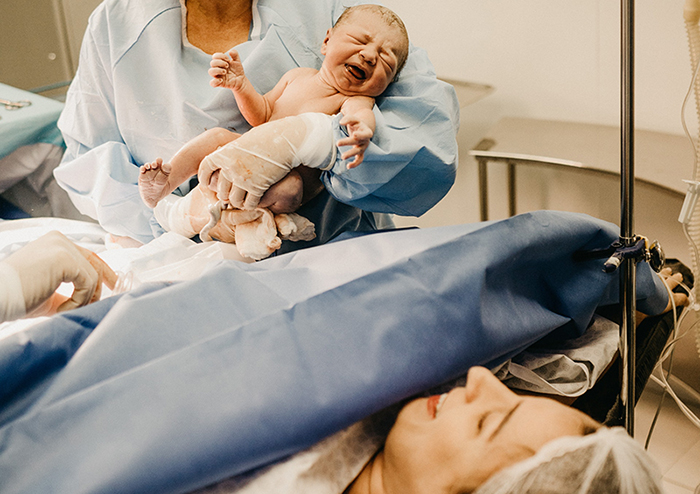Scientific reports related to Coronavirus infections in pregnant women has raised concerns regarding possibilities of its transmission to the womb and infecting the fetus.
However, there is no clarity regarding its occurrence, its frequency of occurrence, and the type of risks that it can pose to fetus.
“Is it possible for SARS-CoV-2 to transmit in utero? Yes, it can happen especially due to the detection of virus nucleic acid in blood samples” from newly born baby, Sergio Stagno, and David Kimberlin of the University of Alabama, Birmingham wrote. “Is it possible that the results obtained are inaccurate and erroneous? Absolutely.”
“Although both these studies require careful assessment, and needs more conclusive evidence before the confrontational results they report can be used for guiding expectant women that the fetus in their womb is prone to catching congenital infection with SARS-CoV-2.”
Several research groups in US are competing to find out more conclusive answers, said Tina Chambers, a pediatrics professor at the California University, San Diego. A research program Chambers will start on Monday to register pregnant women in Canada, and U.S. who are confirmed, or suspected to have Covid-19 infections.
This plan aims to inspect pregnant women through their pregnancies, and delivery and to evaluate the condition of their baby in his first year to see whether infection at any different stages of pregnancy bears risk for the either women or their newborns.
“There are several queries,” Chambers told STAT. “A. Are pregnant women more likely to get infection from Covid-19 infections? B. if infected women are more likely to experience complications in her pregnancy? C. Will it affect their baby?”
“To come up with the answers to these questions, we need to assess the different gestational periods when the expecting mom is infected — whether she is indicative or not indicative or how chronic it is, — what is its impact on the consequence of pregnancy,” she said.
The above reports were based on a few cases in China where newborns were medically proven of infection. Any proof of fetal infections presents another upsetting facet of the coronavirus, called as SARS-CoV-2.
The finding of two papers that got published on Thursday in the Journal of the American Medical Association revealed that a type of antibody to Covid-19 in newly born that isn’t naturally passed through the placenta from pregnant women to her fetus.
The third paper that was published in JAMA Pediatrics revealed that three out of 33 babies who were born to Covid19 infected women in China were infected. These babies were not tested for two days after they were worn. This made it possible that the infection didn’t happen in the womb. All newborns in the reports survived.
Sonja Rasmussen, an expert on pregnancy related infections, said the findings give an indication of “vertical transmission,” where the pathogen can transmit from a mother to her baby in the womb or to a newly born at the time of birth.
Pediatrician and professor at the Florida University, Rasmussen, said, “All these report findings, leads us to the possibility of vertical transmission. It indicates that the virus has the ability to can cross the placenta.”
As of now, there is a very little data available to what is the impact of the virus on pregnant women and their new born. Limited findings that have been published till date has been mostly reassuring.
In the beginning of March, “The Lancet” journal published one report of nine women in Wuhan, China (the place of origination of the virus) who were found positive for Covid-19 infected in their third trimesters. None of them had chronic infections. They gave birth to healthy off springs via caesarean section. None of these babies seemed to be virus infected. As per the report, testing didn’t find presence of virus in cord blood, samples of breast milk, and amniotic fluid.

